- Home
- Helen Dunmore
The Siege Page 3
The Siege Read online
Page 3
She’ll have potatoes at this end: five rows. That should be enough. Onions next to them, those purple-skinned ones her father loves so much. He slices them and eats them raw with just a sprinkling of salt. Plenty of beetroot, spinach, and little rough-skinned cucumbers for pickling. No carrots this year, after last summer’s root-fly. Cabbages, dill, parsley, garlic, shallots. Anna pictured the seeds beginning to stir. Plump nubs of green feeling their way up through the earth, unfolding, fattening, changing hydrogen and oxygen and all the rest of it into solid, succulent food.
Kolya looked better already, just from spending a few days outdoors after that long winter in the apartment. He was losing the waxen look of children who’ve been living inside sealed double windows.
But that moment when the ice-sheath finally loosens, and the brown earth shows, long after you’ve given up hope that it ever will! At first there’s the stink of sour earth, which has been covered all winter with layers of ice. Before the ice melts, it grows grey and rotten. Maybe it’s worth having winter, when it leads to such a spring.
‘Kolya! Don’t roll in the mud like that!.’
He stopped in his play, on all fours on the wet earth, and stared at her.
‘Don’t talk in your nursery voice –’
‘What?’
‘Talk to me in your home voice.’
She laughed, squatted down by him, seized his round little body in its padded jacket, and snuffed the scent of his skin. He laughed back at her, his eyes squeezed into slits.
‘I’ll show you a nursery voice. Children, what is the meaning of this disturbance?’ She grates out the words, and sees him flinch.
‘You sound like Elizaveta Antonovna.’
‘Let’s not talk about her. Listen, do you know what radish seed looks like? Because I’m going to need you to plant some. Radishes, spring onions and lettuce. And then, before you know where you are, we’ll be eating our first salads.’
‘Can I pick them?’
‘First you have to plant them. We’ll start in this bit over here, where I’ve dug. You remember, you have to rake it over carefully, then make the lines with a stick to show where the seeds have to go… they’re called drills.’
‘I know.’
‘And then you can put in the seeds. But not all at once, mind – just a little pinch of seed in your fingers, like this.’
Kolya peered into the brown-paper bags which held the seed, some of it saved from last year, some bought at the market. He poked a finger into the radish seed.
‘It’s all dry and dead.’
‘No, it’s not dead. Don’t you remember last year? Inside the seed there’s a tiny germ of life, waiting until we put it in the soil. Once the sun warms it up, and the rain softens it, it’ll start to grow –’
Kolya yawned, showing the rosy inside of his mouth, and his milk teeth.
‘Never mind, Kolya. Just put the seeds in and see what happens. Maybe you’ll find radishes growing by magic’
‘By magic,’ he repeated. ‘Is this drill deep enough, Anna?’
‘It’s perfect. When the radishes are big enough, you can pull them up. You know how Dad likes them on a saucer, with the leaves arranged round them. You could do that.’
‘He’ll be surprised that I grew them all by myself, won’t he?’
‘If you’re going to say you grew them yourself, then you have to take care of them. Weed them, and water them if they need it. I’ll show you what to do.’
But Kolya was losing interest. He dumped the last of the seed into his drill.
‘Can I go and play?’
Anna went back to the potato patch. She wasn’t going to make any mistakes this year. She would plant as much as possible. As long as you’ve got potatoes, and onions, and a bit of sausage, you’ll always come through.
Kolya’s commentary had started up again. ‘Attack! Attack! Attack! The tanks are on their way –’ After a while she stopped hearing it. Spade into the earth, lean forward, press your weight down, lift. A spadeful of earth thrust up into the light, fresh and glistening, to be turned again and broken. Worms twisted, spiders scurried, little beetles ran off the spade and plopped back on to the earth. She was getting hot. She’d take off her jacket, but Kolya would want to take his off too. A blackbird sang in the lilac bushes, then another, staking out territory with all the fierceness of spring. Farther off, behind the screen of budding leaves, Anna heard someone sweeping a verandah with a broom of birch twigs, brushing with long, steady strokes into every corner so that all the muck left by the melting snow would be gone. Sweeping away the winter.
And now it’s the twenty-first of June, and Anna has four days’ holiday ahead of her. The whole garden is dug, planted, and fuzzy with green. The early crops of lettuce, radish and spring onion are coming on beautifully. She counts over her crops in her mind like a miser counting money. She thinks of how they will be eaten during the dark months.
The white lilac below Anna’s window is flowering late, after the cold start to the year. In the last few days its tight cones of white bud have begun to loosen and release their perfume. A chaffinch has built its nest there, so close that if she leaned out a little farther, she could touch it. But she must hurry. It’s more than twenty kilometres to Marina Petrovna’s dacha, and on the forest roads that’ll take at least three hours’ cycling. Marina Petrovna wants her to come at nine o’clock.
‘And for God’s sake, don’t be late,’ her father said last night. ‘She’s quite capable of refusing to see you, if you are.’
Marina Petrovna sees no one. This has been an article of faith for years. Sometimes her father receives a letter.
‘Who’s that from?’
Her father pauses before answering. ‘Marina Petrovna.’
‘Don’t keep it in the house, Dad, will you?’ She wants to say, burn it, but doesn’t quite dare. At least these letters don’t come through the post, so it’s less of a risk. Has her father been to see Marina Petrovna? Better not ask. She is invisible, for the same reasons as Anna’s father is unpublishable. She had years of fame, and then fame vanished between one day and the next. Her name was wiped from posters, programmes and reviews. But how lucky she was, considering that she’d been associated with Meyerhold as well as Tairov. She was formally criticized by the Committee for Artistic Affairs ‘for her inability to adequately incorporate the fundamental method into her technique’, and for ‘lack of discretion over her choice of artistic associates’. She was called in for questioning, and actually released. Even a year later, she couldn’t have got away with it. She’d have disappeared, along with her name.
But an actress can’t burrow down and work alone, hidden. She’s got to have stage, cast, director, lighting, and above all an audience. She grows older. Her best years pass, and the list of roles she’s never played grows longer. She is silenced.
Marina Petrovna stays in her dacha, not far from the village where she spent every summer as a child, where her old nurse still lives. Her nurse doesn’t even try to understand how people who thought they were actors and poets can suddenly find they have turned into appeasers and left-right mongrels. She wipes her hands with an invisible cloth, and mutters that things have always been like this. High-up people get ideas into their heads, but it’s us who have to bear the brunt. So just you stay here with Nanny. Keep your head down and lie low until it’s all over and done with.
The dacha is only thirty kilometres from the centre of Leningrad, but it might as well be three thousand. No one is invited there, and no one goes. Marina Petrovna doesn’t push her luck. She went to ground, and they seem to have forgotten about her. But they could remember her at any time.
You have to look straight ahead. Don’t look round at the black vans, or the men who climb out of them, mount the stairs with heavy boots, and stand in silence for thirty seconds before the chosen door. Then they raise their fists, and knock.
People tell themselves that the worst is over. And it’s true that it’s better now than
in the worst of the Yezhov terror. You have to believe in something. Even in the Yezhov years, people still trusted in an unbroken record of Party membership, or hoped that influence and contacts would protect them. Or pretended to themselves that they still hoped and trusted.
Sometimes they were released while further evidence was gathered. Fish with hooks in their mouths, waiting to be jerked out of the water, like Olya. She’d been one of Vera’s colleagues. One day in the bread queue, someone tapped Anna on the back. Anna turned, stared, but did not recognize the woman.
‘It’s me. Olya. Don’t you remember me? I used to work with your mother.’
‘Oh yes, yes, of course –’
‘Don’t pretend. You didn’t recognize me, did you?’
‘I’m sorry.’
‘Don’t be sorry. Would your mother recognize me, do you think? Sometimes I think Vera had all the luck. She got away in time. No one betrayed her, and she didn’t betray anybody.’
Of course. Olya. One of her mother’s protégées. She was twenty-two when she joined the radiology department, but she’d looked eighteen, even sixteen. She had very short, wildly curly brown hair that everyone made excuses to touch. She was brilliantly intelligent, and had been the best student of her year.
‘We won’t keep our Olya for long,’ Vera had predicted. ‘She’ll go on to great things.’
‘I lost my job,’ whispered Olya in the bread queue.
‘What are you doing?’
‘Nothing. Just waiting. They’ve chucked me out of the Party as well. You know, Anna, work was everything to me. My colleagues were my family.’ She glanced behind her, scanning the street. ‘I shouldn’t talk to you. It might be dangerous for you.’
‘Olya -’
‘No. I’ve got to go.’
All over Leningrad they lie frozen in the hours before dawn, listening for the knock that comes to other doors, but never, surely never, to your own. Not to you, with your next promotion on its way, and the holiday in the Crimea planned, and little Mitya’s fourth birthday next week.
Even Anna’s boss, that perfect supplier of statistics and ever-ready follower of Party directives, even Elizaveta Antonovna was grey with terror that February four years ago, after Stalin’s speech to the Central Committee. Wreckers, traitors, enemies and saboteurs were not only to be found in the opposition. They had infiltrated the Party itself, and were among its élite, masking themselves as irreproachable Party activists and committee members. But how could you ever prove it wasn’t a mask, Anna wonders. Only by ripping off your own flesh…
Behind Anna, Kolya stirs. He sits up, instantly wide-awake.
‘I want to come with you!’
‘You know you can’t. We talked about it yesterday.’
‘I’ll be so quiet she won’t even know I’m there.’
‘No, Kolya. Marina Petrovna hasn’t asked you. And anyway, you’re going fishing with Dad, aren’t you?’
He’d forgotten that. She watches the two pleasures fight in his face.
‘And when I come back you can show me what you’ve caught.’
‘You’re better at catching fish than Dad.’
‘You’ll be fine. Just don’t let the fish see your shadow.’
‘Why not?’
‘Because if he sees your shadow he knows you’re waiting to catch him.’
‘Anna.’
‘What?’
‘I won’t move. I’ll be so still the fish will think I’m a tree. Like this.’
He lies perfectly still, with his hands crossed over his chest. Anna is about to tiptoe out of the room, but somehow she can’t leave him like this, lying on his back, with his hands folded, so still. It looks wrong – unnatural –
‘Kolya?’
He springs up, glaring at her. ‘I shut my eyes so you could go! You keep saying goodbye and you never go. I hate it when you do that.’
3
The track narrows to a path. She’s going to have to get off her bike. Birch, bird-cherry and larch have given way to the deep green gloom of fir, and the trees meet overhead. Anna dismounts, and takes out the sheet of directions her father has written down for her. ‘Turn left at the Tutaev farm (watch out for the dogs), then carry on for about six kilometres until you come to the crossroads…’
He was right about the dogs. Two Alsatians ran out after her, snarling and snapping round her wheels. But they were half-starved, and couldn’t run fast enough to catch her as she raced downhill away from the farm. What if she’d had Kolya on the back, with his plump legs hanging down and his weight slowing them just enough for the dogs to outrun them? She must remember to go back another way.
There should be a wooden gate in the wall which runs along the track here. The wall is crumbling, held together by moss, ivy and creeping tendrils of bramble. She could climb it, but that would mean leaving her bike. She’d better keep going.
Anna half-lifts, half-pushes her bike. The sun is hot now, and under the canopy of firs the air is warm, resinous and sleepy. You could lie down here, with your head on a cushion of pine-needles, where the trees’ roots arch above the forest floor like arthritic fingers playing the piano. You could shut your eyes.
Anna never gets enough sleep. There’s Kolya to rouse and wash and dress. He ought to do it himself, but there isn’t enough time. She makes his porridge, tidies round and does some washing if there’s time. Her father never wakes. He sleeps like a stone in the mornings, in a thick, dead sleep that doesn’t refresh him. It’s not surprising, since he’s up most of the night. She hears him moving about. A shuffle from room to room, very quiet, so as not to wake anyone. The clink of a glass. A cough, a sigh. Sometimes she could swear she hears the pages of his book turning as she listens, frozen and on edge, unable to go back to sleep herself because it feels as if she’s abandoning him. And then for a long time, as much as an hour sometimes, he doesn’t move at all. She pictures him sitting there, head bowed towards his chest, book slipping to the floor, worn out and sleepless, with a glass of tea cooling by his side. But she must get some sleep – she’s got work in the morning.
She has to be at the nursery by seven. She sets the tables, scrubs the little toilets that Lyuba never cleans properly, checks menus and food deliveries and does as many of the dozen jobs on the list inside her head as she can, before the children start to arrive at seven-thirty. And here they come, six of them, seven, a dozen, fifteen, a flood of little bodies packed into padded trousers, jackets, caps and boots, swaying sleepily on their feet and quite unable to take off their own boots, or put their jackets on the correct pegs.
Their mothers have been up since five and even so they’ll be late if they don’t rush off now, this minute, unpeeling the hands of little Vasya or Maya who clings on tight to mammy’s legs and won’t let go without a screaming session. Above the din, Anna says over and over again: ‘Don’t worry, he’ll be fine as soon as you’ve gone. I promise you, he’ll be smiling again in five minutes.’ If only I keep my job here. If only I can keep Kolya with me.
All day Anna deals with runny noses, tired tears, biting and hair-pulling, lessons in hygienic hand-washing, and socialization at playtime. Demarcation lines are strict. Anna is an unqualified nursery assistant, not a teacher. Elizaveta Antonovna Zamirovskaya, with her pedagogical qualifications and anxious, pedantic sticking to theory, never forgets for one instant that she is the expert and she is in charge. ‘I have to deliver the type of education which will develop the children’s concept of Soviet citizenship to its full extent. I don’t expect you to understand the nature of that responsibility, Anna Mikhailovna, but I do expect you to cooperate with it to the best of your ability.’
‘Allow me to assure you of my fullest cooperation, Elizaveta Antonovna!’ Anna shouts back eagerly whenever this speech comes round, as it does two or three times a month. She has realized some time ago that Elizaveta Antonovna lacks confidence, for all her degrees. She needs bolstering, and the best way for Anna to do this is to assume the manner of a ze
alous factory forewoman receiving her morning orders. ‘And may I report that the children’s toilets are still overflowing. I don’t think that plumber we had last week was much good.’
But after all, poor Elizaveta Antonovna, it’s a struggle for her. She doesn’t like the children much, and they don’t like her at all.
Anna is becoming anxious. Still the same crumbling wall. Still no gate. Maybe Marina Petrovna never meant her to find the place. It isn’t going to happen. No need to have selected and sharpened her drawing pencils so carefully, and spent so much more of her wages than they could afford on a new block of drawing-paper. And all this, because her father had written about Anna’s work in one of his letters to Marina Petrovna. He was too conscious that she’d had to leave school to take care of Kolya, and he tried to make up for it with praise and encouragement that sounded false in her ears. He thought she was turning into a worker bee. But wasn’t that what he wanted and needed? Anna to queue for him, and mend Kolya’s clothes, and run from shop to shop until she got hold of fresh milk.
‘You’ve got real talent, Anna. You must develop it.’
‘Yes, for getting hold of an extra hundred grammes of sausage… ‘But she didn’t say it aloud.
What was the use of talent, without training? She was making no progress at all. Her technique was poor. What she needed to learn could never be learned in spare moments in between her job and the house and Kolya. She needed teachers. She needed contemporaries, who would drive her on. But then, did she need to learn to be ‘national in form, socialist in content’?
Without telling her, Mikhail packed up Anna’s pen-and-ink portrait of Kolya, and her pencil sketches of Lyuba working in the nursery kitchen, and sent them to Marina Petrovna.
‘What did you do that for!’ Anna shouted at him when she found out. ‘You should have asked me first. I’m not a child.’ The flare of humiliation surprised her. Suddenly she hated that portrait of Kolya, which was the best thing she’d done. She wanted to disown it, and the sketches too. But then Marina Petrovna sent the work back, padded and packed with extreme care, as if Anna’s drawings were rubies. With it there came a letter. She’d liked Anna’s work. Would Anna accept a commission? Because if so, Marina Petrovna would very much like Anna to come and draw her.

 The Ingo Chronicles: Stormswept
The Ingo Chronicles: Stormswept The Deep
The Deep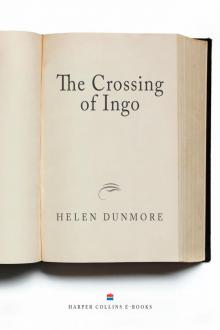 The Crossing of Ingo
The Crossing of Ingo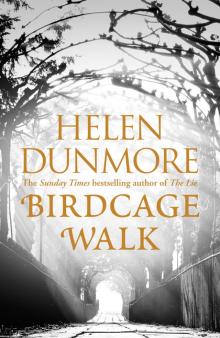 Birdcage Walk
Birdcage Walk Glad of These Times
Glad of These Times Counting the Stars
Counting the Stars With Your Crooked Heart
With Your Crooked Heart Burning Bright
Burning Bright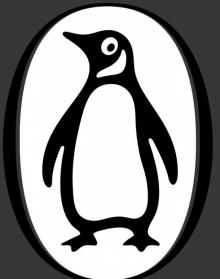 House of Orphans
House of Orphans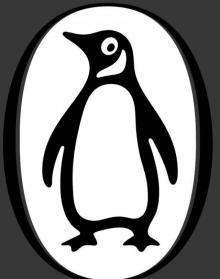 Mourning Ruby
Mourning Ruby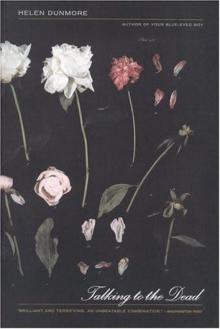 Talking to the Dead
Talking to the Dead Exposure
Exposure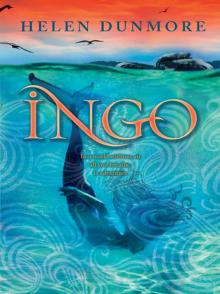 Ingo
Ingo The Malarkey
The Malarkey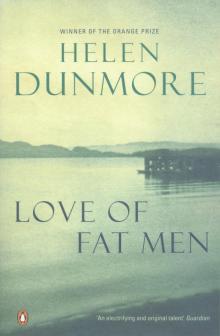 Love of Fat Men
Love of Fat Men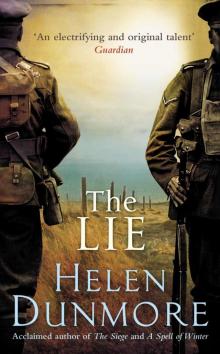 The Lie
The Lie The Siege
The Siege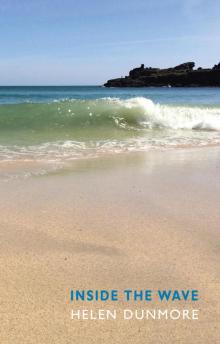 Inside the Wave
Inside the Wave Counting Backwards
Counting Backwards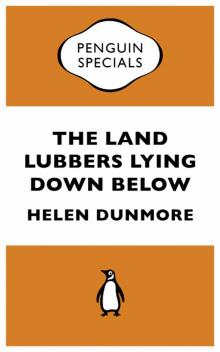 The Land Lubbers Lying Down Below (Penguin Specials)
The Land Lubbers Lying Down Below (Penguin Specials)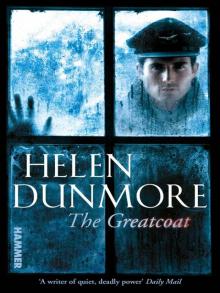 The Greatcoat
The Greatcoat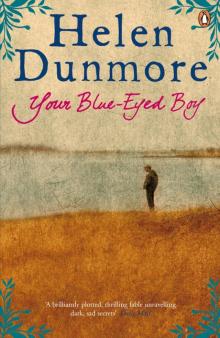 Your Blue Eyed Boy
Your Blue Eyed Boy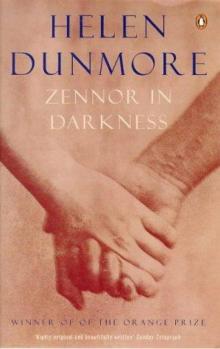 Zennor in Darkness
Zennor in Darkness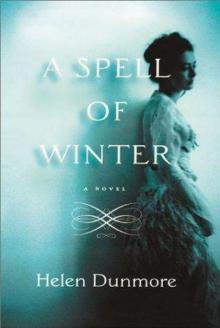 Spell of Winter
Spell of Winter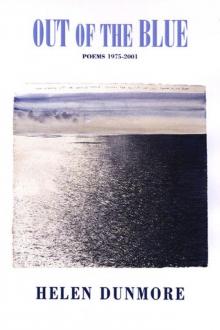 Out of the Blue: Poems 1975-2001
Out of the Blue: Poems 1975-2001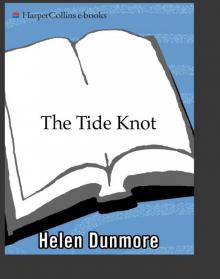 Tide Knot
Tide Knot The Betrayal
The Betrayal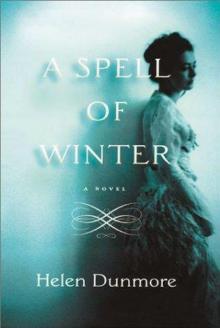 A Spell of Winter
A Spell of Winter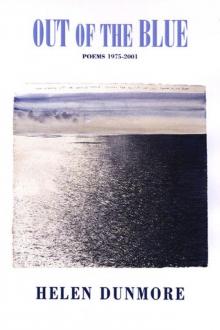 Out of the Blue
Out of the Blue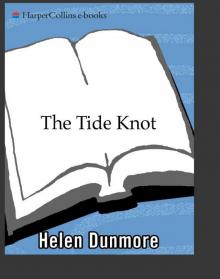 The Tide Knot
The Tide Knot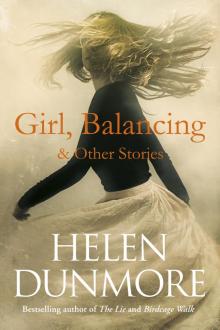 Girl, Balancing & Other Stories
Girl, Balancing & Other Stories Betrayal
Betrayal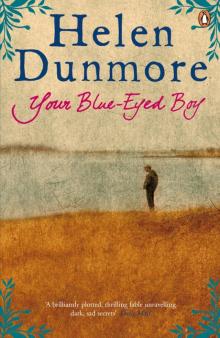 Your Blue-Eyed Boy
Your Blue-Eyed Boy